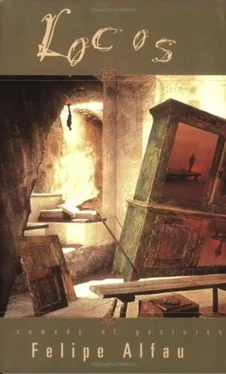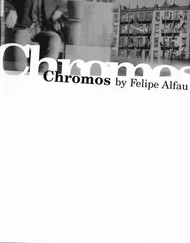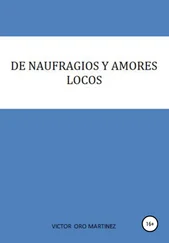News of the elopement from the convent and her romance with the priest ending in his suicide had spread through Madrid and soon assumed the proportions of a real novel. Therefore their clientele was large and select, including many high government and church officials which ensured a great degree of safety and success for the business.
This is what I know of El Cogote previous to the time of our meeting. Consequently, I was quite curious to know him personally and when my friend. Dr. José de los Rios, told me that he was his friend and patient, that he was going to see him and that I might accompany him, I accepted immediately.
On our way to the house of El Cogote, I inquired from Dr. de los Rios what he meant by his patient; whether El Cogote was sick.
“Yes,” said Dr. de los Rios. “Very sick. It is an old malady with him, too. He has always neglected the treatment and instead does in excess everything he should not do.”
Dr. de los Rios went on:
“You know? El Cogote is quite an extraordinary person. He will interest you. He is not at all a vulgar chulo , he seldom speaks like one when he is not in their company. You know? A strange thing just happened to him and has upset him in a terrible way. of course, his nerves are in bad shape and I think that his malady has already affected his brain. “
I reminded Dr. de los Rios that he was not telling me what he had started out to say.
“Well, he tells me that the other night he was walking home. Here in the same direction we are walking now. And that it was raining heavily. You know? I have told him time and again that in his condition he must avoid exposure, but he never wants to listen. ”
“Yes, but what happened to him?”
“Well, he met a girl. He says that up to that moment, he had been convinced that no woman could interest him for herself aside from his mistress, but the moment he met this girl that conviction abandoned him completely. He says that in a moment he realized that the girl in question embodied all the ideals of his life, that he knew he would love her always and would not be able to live without her. Well, I have never heard El Cogote express himself so sentimentally before.”
“Yes, that is unusual in a man of his type, but I don’t see anything so astonishing in his meeting a girl.”
“But listen. the next morning he opened a newspaper and he saw a picture of the girl and an account saying that Maria Luisa Baez, known as Lunarito, the same name she had given him, had been murdered the afternoon before by a jealous suitor. Mind you, the afternoon before the night when he met her. Of course, this has had a terrible effect upon him. Things like this are dangerous in the condition in which his mind is.”
“But of course you don’t believe that.”
“Of course not. I don’t believe in ghosts, but the whole thing is strange. I made inquiries and found out that the autopsy of her body took place at three o’clock of that afternoon. But, by the way, didn’t you see the account in the papers?”
“No, you know I don’t read papers much.”
“Just the same. I then told El Cogote that in his weak condition he might have gone to sleep for two days in succession and that he may have met the girl the night before the day she was murdered. I wanted to give him some explanation.”
“That is more logical at any rate.”
“Yes, but it is not true, because Carmen has told me so and she ought to know, and besides El Cogote has ascertained the dates from the things he did and people he met.”
“But do you believe or don’t you?”
“No, I don’t.”
And then Dr. de los Rios and I arrived at the house of El Cogote.
As we ascended the stairs we heard a voice yelling.
“There he goes raving again,” said Dr. de los Rios. “For two days he has been calling for Lunarito. He says that he cannot live without her, that he cannot take that vision from his mind.”
A woman in a red kimono opened the door for us. She held a handkerchief in her hand and showed plainly that she had been crying.
“This is Carmen,” Dr. de los Rios said to me.
A very old-looking woman with an apron, apparently a servant, advanced toward us and stopped in front of Dr. de los Rios. She looked at him blankly and almost recited:
“If poor Gil should lift his head. If poor Gil should lift his head.”
Carmen pushed her away gently:
“Go back to your kitchen.”
And the poor woman walked away obediently, always repeating:
“If poor Gil should lift his head. If poor Gil should lift his head.”
We followed her with our eyes and I was aware of a respectful silence. Then Dr. de los Rios addressed Carmen:
“Do not take things so badly. I will see what I can do for him. Are you coming in with us?”
“Oh, no, I cannot bear to look at him. He has such an expression! Besides, he does not want to see me I am terribly afraid, Don José. ” She closed the door behind us, submerging the small lobby in thick shadows. We were silent again and I heard her sobbing in the darkness.
Since Carmen had opened the door for us, I had been under the impression that I had lived this scene before. The presence of Dr. de los Rios, that sick man in the house, the old insane woman and this other woman who had shut the door in silence. Everything convinced me that I had formed part of the same circumstances some time before, and all that followed I knew and expected. It was the strangest sensation of advancing ahead of time.
I followed Dr. de los Rios through a short corridor and entered the bedroom.
El Cogote lay upon a bed, the covers thrown aside, the coat of his pajamas torn from the shoulder down. He was panting with fatigue from his recent attack.
Dr. de los Rios said:
“I have brought a friend to cheer you. How do you feel today?”
With an obscene word, El Cogote informed us that he was done for.
Dr. de los Rios motioned me to a chair and then sat on the edge of the bed and held the sick man’s wrist. He produced a watch and remained still for a while.
“Aha,” he finished. “And how did you sleep last night?”
“Very badly, Don José, worse than ever. I had a terrible nightmare.”
“Well, tell us your nightmare,” said Dr. de los Rios in a jesting manner. “My friend here can tell your past, your future and your fortune from a dream.”
There came a slight flush into the face of El Cogote.
And then he told us his dream.[1]
In his dream he found himself again at the house where he had lived with his family as a young man.
At the end of the corridor there was a room that had formed a kind of superstition in the family. No one liked it, they were all afraid of it.
On that particular day, he had tried in a joking manner to convince them of the absurdity of their fear. He told them that in order to do away with ghosts one had to do nothing but approach them. He told them that it would suffice to enter the room and the fear would leave them. He was then the only man in the house. His father had died and his younger brother was still a child.
El Cogote speaks:
“In my dream I was playing with my sister. Not the younger one but the other. you know, Don José?”
And Dr. de los Rios nodded.
“But in my dream my sister had the face of Lunarito, you understand me? Perhaps in my dream Lunarito was my sister. Lunarito has been in all my dreams. I have not been able to get her away from my mind since that night.”
In his dream he began to joke and play with her and then dragged her along the corridor and, in spite of the almost savage resistance she opposed, he took her laughing in his arms and precipitated her inside the room.
“No.! No.!” she cried and the door closed, silencing her voice like a tombstone. Then he heard her no more. Undoubtedly, in her panic, she feared to arouse the horror of the room with her voice.
Читать дальше












